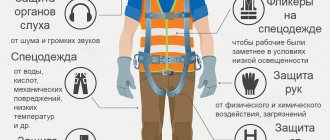Protecting the employer by our lawyer gives a positive result for any business. Sometimes an employee begins to use his rights to the detriment of the employer. It is also necessary to protect the employer, as well as the rights of the employee.
ATTENTION: if you are an employee and not an employer, then you will be more interested in protecting the labor rights of employees (just follow the link).
What rights does an employer have under the Labor Code of the Russian Federation?
We talk about the rights of the employer in Article 22 of the Labor Code of the Russian Federation, according to which the employer has the right to:
- conclude, amend and terminate employment contracts with employees. It is worth noting that the employer has the right, and not the obligation, to conclude an agreement, with the exception of certain cases provided for by law.
- conduct collective negotiations and conclude collective agreements
- if employees work conscientiously and efficiently, they will be rewarded for this
- demand that employees fulfill their job duties, and also take care of the employer’s property, and comply with the rules of the Russian Federation. It is difficult to imagine if the employer does not have the right to demand compliance with labor discipline and proper performance by employees of their labor functions
- in certain cases, bring employees to disciplinary and financial liability. In this case, the employer will have to follow a certain procedure to attract employees to these types of liability.
- adopt local regulations
- create associations with other employers to protect their interests
- create a works council
- exercise rights within the framework of legislation on special assessment of working conditions
ATTENTION: watch the video on the topic of protecting the labor rights of an employee, and also subscribe to our YouTube channel to be able to receive free online legal advice through comments on the video.
Employee rights
A company employee has the following rights:
- the worker has the opportunity to enter into, change and terminate employment relationships;
- the employee has the opportunity to perform the work specified in the employment contract;
- The employee’s place must meet all labor safety standards;
- the employee has the opportunity to receive wages without delay. It must correspond to the level of his qualifications and the work done;
- has the opportunity to rest;
- has the right to receive comprehensive information about working conditions;
- has the opportunity to undergo additional training and improve their qualifications;
- has the opportunity to unite in trade unions to protect their interests;
- can participate in organizational management;
- can participate in negotiations and conclude collective agreements;
- has the right to defend their interests, freedoms, rights;
- can resolve labor disputes, both individual and collective;
- may demand compensation for damage caused to him at work, including moral damage;
- has the right to compulsory insurance.
Protecting the rights of the employer during an inspection based on an employee’s complaint
When conducting an inspection with an employer based on an employee’s complaint, the protection of the employer’s rights will consist of providing documents refuting the complainant’s arguments.
In addition, inspectors must have documents giving them the right to conduct the appropriate inspection.
During the inspection, inspectors should provide written explanations of the circumstances specified in the complaint.
If, as a result of the inspection, the employer is issued an order that is illegal, then it is better to appeal it in court. If the employer refuses to appeal the order, it will have to comply with it. Missing the deadline for appeal may result in the loss of the opportunity to cancel an illegal order in court and the need to execute it.
Defense of an employer in a dispute with a trade union
If a dispute arises between an employer and a trade union, the employer’s defense will be based on what the trade union presents to the employer, i.e. what violations, in the opinion of the specified body, were committed by the employer.
The employer must present arguments that would refute the union's arguments about violations on the part of the employer.
Perhaps, when considering a particular issue, there will indeed be a fact of violations committed by the employer; in this case, it makes sense to take measures to eliminate the consequences of the relevant violation and restore the rights of employees.
Protection of the employer's rights in court
Representation of the employer's interests in court and, accordingly, its defense consists of the employer's side proving its arguments and refuting the arguments of the other side.
The defense will be built individually in each specific case, since each dispute has its own nuances.
For example, suppose an employer fired an employee for absenteeism. The dismissed person decided to file a lawsuit and challenge the dismissal, asking at the same time to recover from the employer the amount of forced absence and moral damages. In a specific situation, to protect the employer, it will be necessary to clarify a number of issues, namely:
- whether the fact of absenteeism of the dismissed employee was recorded;
- whether explanations regarding the circumstances of absenteeism were taken from the employee before dismissal;
- were there any circumstances that prevented the application of such a disciplinary sanction as dismissal?
- and other questions.
The main evidence in the employer's defense will be written documents. In addition, in certain cases it will be necessary to question individual employees of the employer as witnesses.
When defending the employer, it is subject to proof that the employer has followed the necessary procedures, for example, the procedure for bringing the employee to disciplinary liability, delivery of all necessary documents, familiarization with local regulations, request for explanations, etc. In addition, in each case it will be necessary to record the fact of violations on the part of one or another employee, and subsequently provide such evidence of recording violations to the court.
Methods of protection
There are several ways to protect violated worker rights.
Self-defense
Independent protection of rights is a person’s actions aimed at protecting and protecting his rights. It is carried out by contacting the authorities that supervise and control the labor sphere. The method of self-defense is the Labor Code. Self-defense methods:
- the worker may not perform a work process that is not provided for in the employment contract;
- an employee may refuse to perform work that poses a danger to him;
- a worker may stop performing his functions if funds are not paid on time.
Self-defense is not formalized and does not entail involvement from government agencies. When exercising his right to self-defense, a worker cannot be brought to disciplinary liability. In addition to such protection, you can resort to other methods.
Judicial
To restore his violated rights, a worker may resort to judicial authorities. This method of protection is considered the most effective. The judge's decision must be strictly observed. The deadline for going to court is within three months after the violation of the right, and after dismissal - one month. In addition to the court, a worker can appeal to other bodies, for example, to the commission for resolving labor disputes.
A court decision in favor of the worker occurs very often, so you should not think that the court will be on the side of the company management.
Unions
Workers' associations, called trade unions, help workers to protect their interests and rights. Regardless of whether the employee is a member of a trade union or not, in protecting collective rights, the trade union provides its assistance. Trade unions have their own rights and opportunities:
- they may propose the adoption of regulations and laws that relate to the social sphere of labor legislation;
- they can express their opinion on the draft acts;
- they have the right to take part in resolving issues related to remuneration;
- may be present at the workplaces of their members;
- can take part in the development of employment programs;
- have the right to control the sphere of employment;
- can evaluate the actions of management upon dismissal;
- can monitor compliance with laws.
Trade unions, in order to protect the rights of their members, can apply to government bodies that oversee the labor sector. They can demand that management respect the rights of their employees, as well as eliminate violations. Within seven days after receiving a request from the union, management must report to it on eliminating non-compliance.
Protection of the employer's rights to official work
Certain employers enter into employment or civil contracts with employees so that the latter create certain work products.
To protect the employer’s rights to a work for hire, it is necessary to ensure that the created work for hire belongs to the employer before concluding a contract. Based on this goal, the best option would be to contact a qualified lawyer to develop the correct terms of the contract. Our law office will help you draw up such an agreement.
What to pay attention to when concluding an employment contract with a creative worker:
- an employment contract must be concluded with the employee specifically for the creation of official works
- the contract must stipulate that the employee’s responsibilities include the creation of intellectual property objects
- It would also be a good idea to stipulate in the contract that the rights to the created professional work arise with the employer
- In addition, in order to avoid disputes, in addition to the salary, the contract should also provide for the amount and procedure for paying remuneration to the employee as the author of the work
In the event of a subsequent dispute, the employer will have to provide evidence that the work was created by the employee on the basis of an employment contract, during the period of validity of such an agreement.
Thus, when defending, the employer will have to prove that the work was created by the employee in the performance of his official duties.
Issues related to the creation of official works have many nuances, so all possible issues should be provided for in advance, including for the purpose of subsequent protection of the employer’s rights to the official work.
Common violations of employee rights
It is rare to find a company where absolutely all workers' rights are respected.
Often they are violated even without malicious intent, when an employee, for example, stays late at work without pay or does work that is not his job so that his superiors notice him. In Western countries, they monitor more closely the rights of ordinary workers. A common situation that dishonest employers take advantage of is that the employee does not know his rights. In Russia, the most frequent examples of non-compliance with worker rights are in the following areas:
- the procedure for concluding an employment contract, as well as its termination or modification;
- payment for the work process;
- labor protection;
- rest and work schedule;
- violation of the provision of compensation and guarantees;
- imposition of penalties.
Regarding the employment contract
Getting a job begins with the execution of an agreement between the employee and management. According to information provided by the State Labor Inspectorate, the following violations were identified:
- lack of a written agreement;
- the contract does not have mandatory working conditions;
- when applying for a job, the person was not introduced to the company’s labor regulations, the collective agreement, as well as other acts of the state that are related to his direct activities;
- the order for employment was not issued, or was issued in violation of the deadlines;
- minors were not examined by doctors before going to work;
- the work book is stored in violation of storage rules;
- the period during which the employee must be notified of all changes in the employment contract has been violated;
- assigning a probationary period to categories of citizens to whom it should not be assigned;
- concluding a civil law contract instead of a labor contract.
Such non-compliance is usually discovered during an inspection or when an employee makes a complaint. The prosecutor's office can also conduct an inspection.
Admission to certain positions must be supported by a certificate confirming that the person has no criminal record, or, for example, a driver’s license. The absence of these documents when applying for a device is a violation.
In the process of remuneration payment
Such violations occur quite often. The inspection classifies several types of them:
- wages are paid once a month;
- payments occur with delays;
- upon dismissal, no money is paid.
By law, salaries must be paid to employees twice a month. Some unscrupulous employers pay money as they please. They use the “black method” of payment. Upon dismissal, there is no settlement with the employee.
Related to labor protection
The area of labor protection for employees has many violations. Management does not comply with requirements regarding workplace certification. It must be carried out at least once every five years for each employee’s position. When accidents occur at work, management neglects the following points:
- management does not inform the competent authorities that the employee has received serious injuries;
- lack of a commission to investigate injuries and accidents;
- lack of documents related to the accident.
In the field of leisure and work hours
Most often, when checking by the inspectorate, the following violations related to rest and work hours are revealed:
- too long working hours and short rest;
- not providing vacations;
- violation of working hours for certain categories of citizens.
Applications of penalties
The inspectorate draws attention to such violations as the unreasonable application of penalties to an employee. This also includes the lack of a written explanation from the employee and the failure to draw up a report.
Employer protection (protection of employer rights) in Yekaterinburg
To avoid this, you should correctly, and most importantly, timely formalize your employment relationship with the employee and correctly apply the Labor Code of the Russian Federation.
Our lawyers have more than once analyzed an employment contract at the request of an employee or as part of the employer’s defense. Correct adherence to these two points will allow you to significantly reduce the costs of litigation, because labor legislation imposes much more requirements on the employer than on the employee. Timely consultation with a lawyer on labor issues will help to avoid conflict situations and resolve the dispute at an early stage of its occurrence.
Legal support will help you in such matters as:
- proper dismissal of an employee who violates labor discipline and refuses to perform his job functions. The result of consideration of his claim with a demand for reinstatement and compensation for moral damage, recovery of wages for forced absence depends on how correctly you carry out and formalize the termination of the employment relationship with the employee;
- bringing the employee to financial and disciplinary liability, defending the interests of the employer in court on claims with demands: appeal of disciplinary action initiated by employees;
- professional dispute resolution with the participation of a mediator, namely a lawyer from our law office; resolution of legal disputes with subordinates.
- Our legal practice allows us to promptly counter and correctly respond to employee complaints to various authorities: a complaint to the tax office against an employer, a complaint against an employer to the labor inspectorate, the prosecutor's office, etc.






